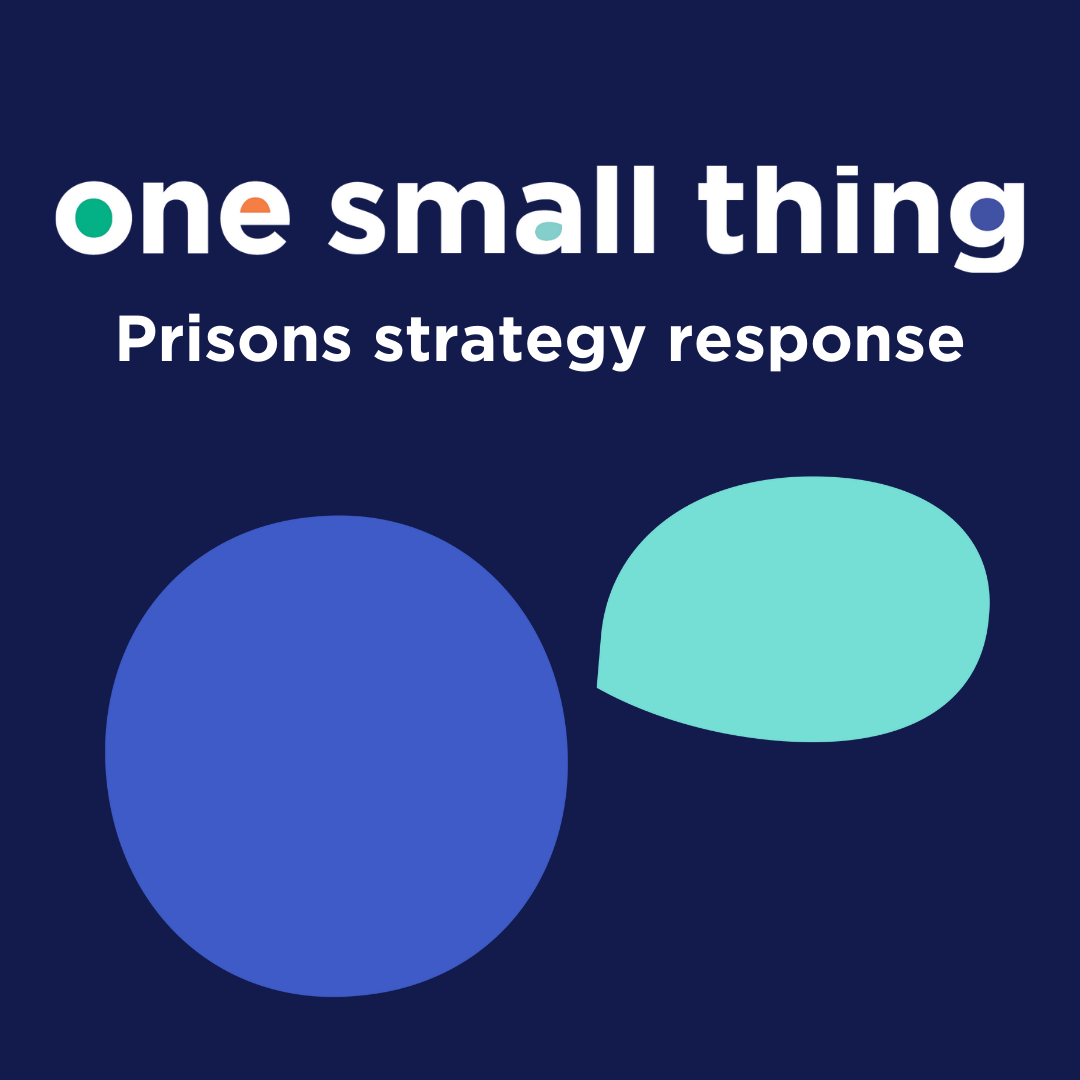Blog - Prisons Strategy Response
In the next of her series of blogs, our Women’s Involvement Advisor Lilly Lewis explains what the Government should include in their new Prisons Strategy to truly redesign the justice system for women and their children.
This month in my role as Women's Involvement Adviser, I have been reviewing the Government’s Prisons Strategy White Paper to inform One Small Thing’s response, which has been submitted today.
It is important to include voices of women who have been to prison in this strategy, as they can understand what changes would actually help. If you have not spent a day in custody, it is very hard to fully imagine the impact this has on your family, your children, your mental health, your housing situation and financial anxiety.
The strategy suggests that the average sentence for women is 11.3 months but that their ambition is ‘rehabilitation’. These short sentences are not enough time to rehabilitate, to reduce substance use or to undertake any therapeutic work that women in prison require. In this time children are removed from their mother, housing and benefits can be lost and those with mental ill health leave even worse.
Most women I knew in prison were repeat offenders. One had been in prison 32 times on short sentences. Most women would come into prison on short sentences for offences such as shoplifting non-payment of fines, TV licence, council tax or being recalled because they can't keep up with probation appointments. If these women were supported in the community with a focus on domestic abuse and substance misuse, we would not see the same faces through the prison revolving door.
I see no reason why pregnant women and women with children should be sent to prison, particularly for non-violent crimes. My own belief is trauma can happen whilst in the womb and this will also have a detrimental effect on an unborn child. Too many times have I read about women losing their baby in custody. One is one too many. Community-based solutions would work so much better for women and their children and would see a higher rehabilitation rate and ultimately reduction in crime. Separation from a mother who is incarcerated has a huge impact on a child's mental health and more research is needed in this area.
The consultation asks about women in prison with protected characteristics, I believe they are being hugely let down when placed in custody. We need to see more diverse officers and medical staff in the women's estate. Even specialist equalities staff were often white and could not relate to the issues that black and minoritised women had. When I reported what I felt was racist behaviour I did not get any response. This included women in the dinner queue using racist stereotypes in front of me or going to collect my medication and an officer handing me an Asian woman’s prescription. When I said I wasn't her, she replied ‘Oh you look like her’. I'm half Jamaican so I guess to her we both had brown faces.
Discrimination could also be seen in who was allowed certain benefits such a reduction in the amount of their wages they had to pay to the victim support scheme. Lots of friends of mine had the standard 40% reduced to 20% or 15%, and some kept all their wages. I did not know one black or minoritised woman that had received this. When I have looked into this since, no statistics are available, despite this being recommended by the Lammy Report. Only 1% of Judges are Black. If there were more then maybe we would see a bit more equality in the criminal justice system. At the moment it feels like a criminal system with little justice.
This strategy does not go anywhere near far enough to address the diverse challenges women face, and for most prison is just not the answer. My vision would be to have more community-based solutions such as Hope Street where families can be kept together and women can be given the trauma-informed support they need around areas such as domestic abuse, poor mental health and substance use.


